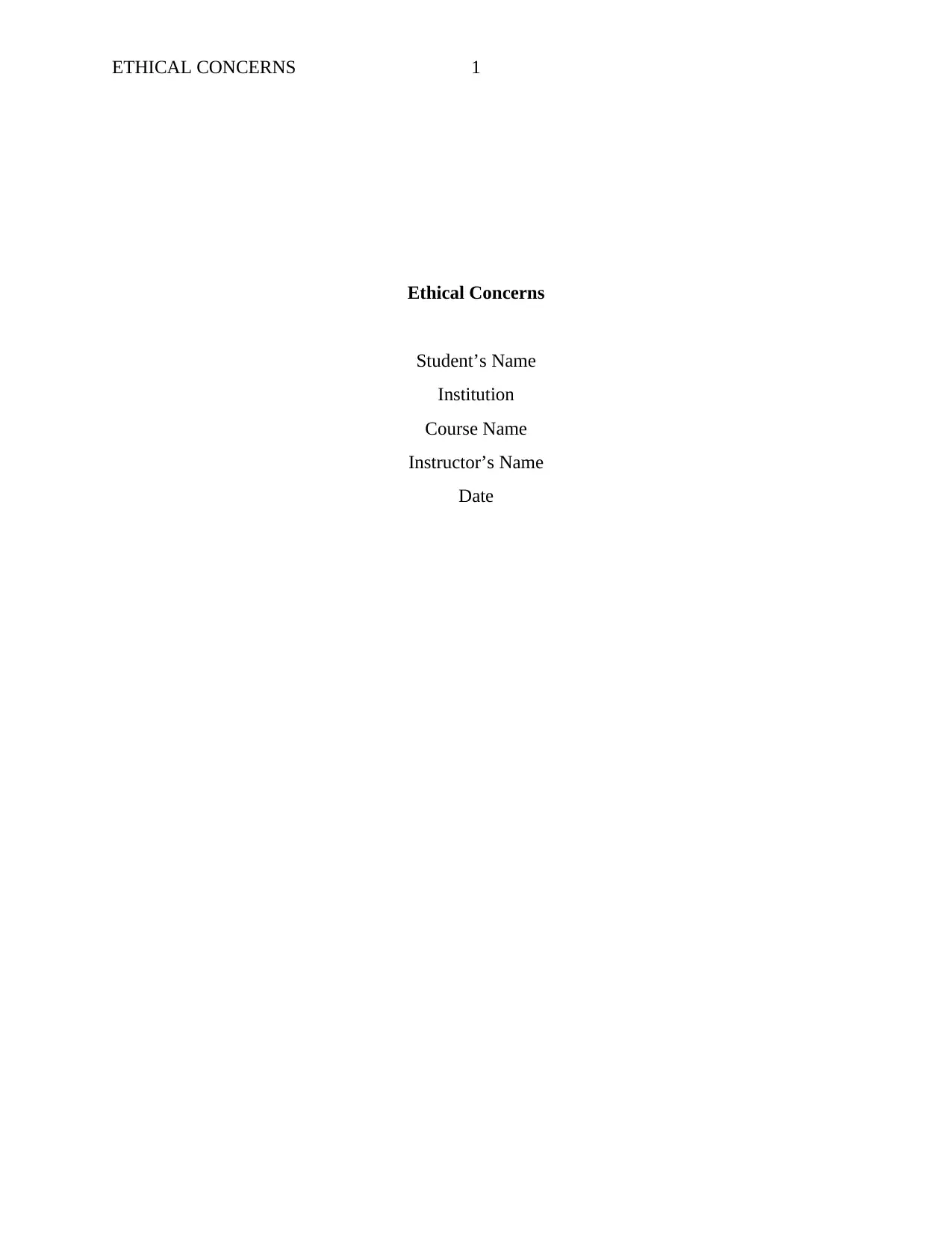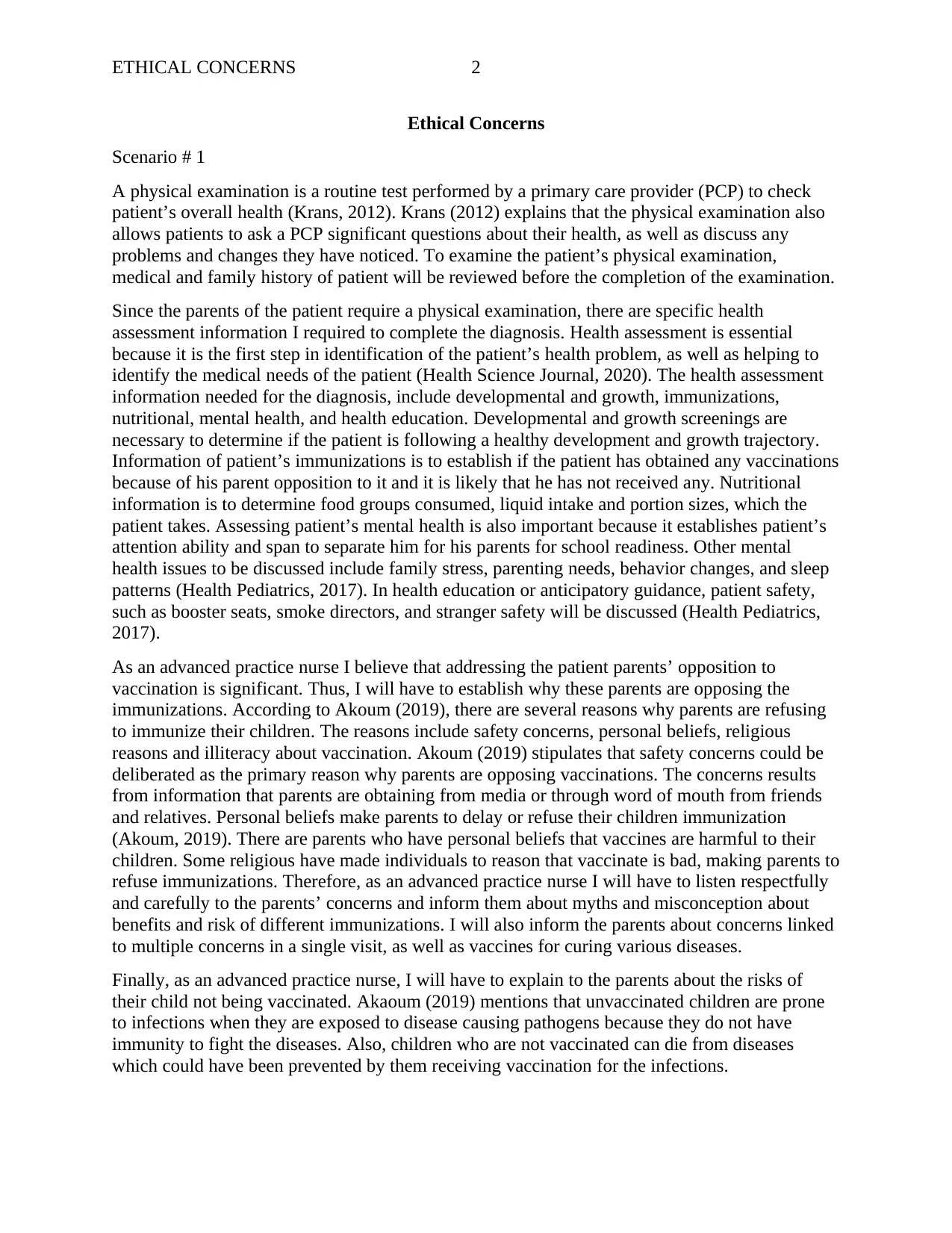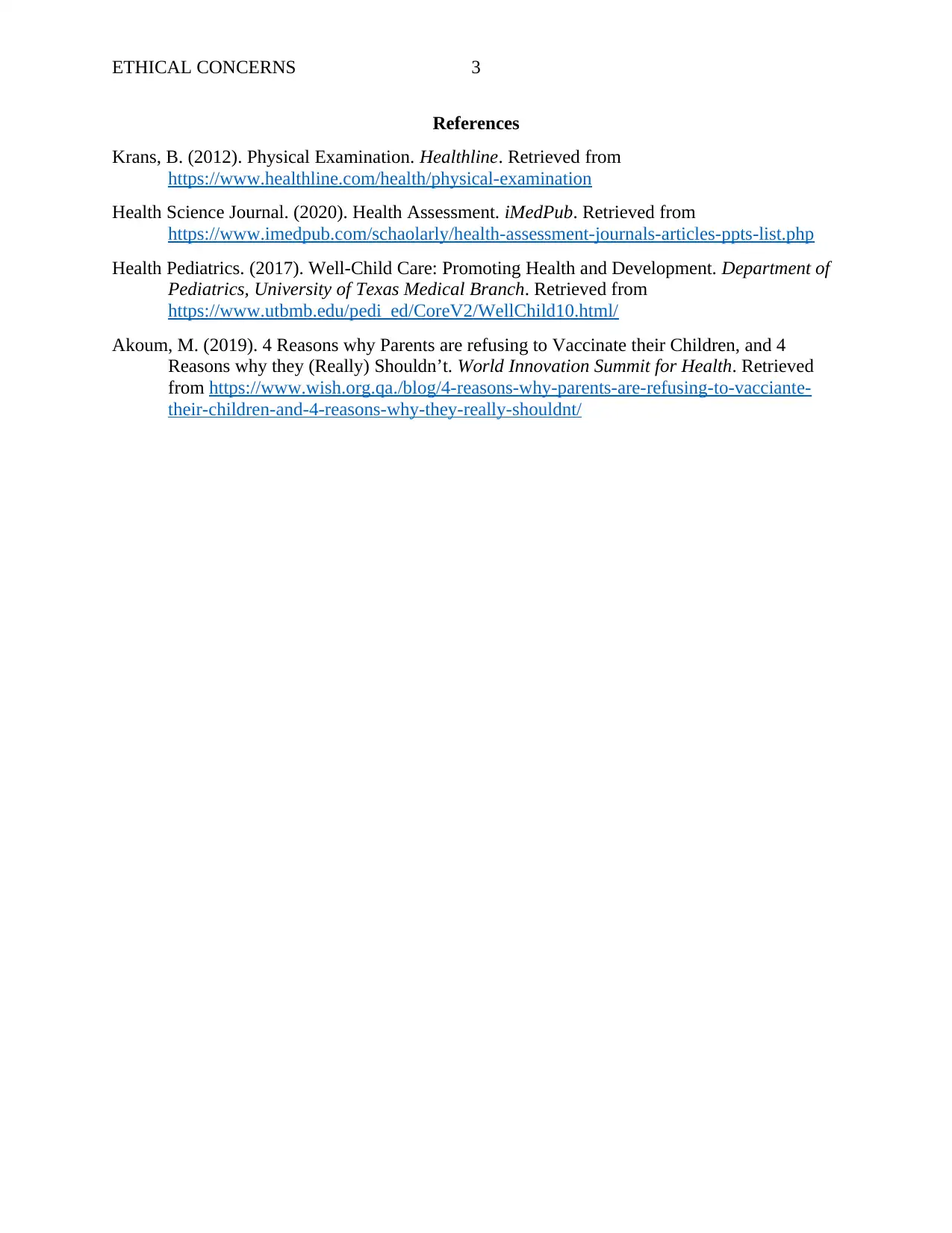Ethical Concerns in Healthcare: A Case Study on Vaccination Decisions
VerifiedAdded on 2021/03/16
|3
|771
|104
Essay
AI Summary
This essay addresses ethical concerns in healthcare, focusing on a scenario involving parental opposition to vaccination. It examines the role of an advanced practice nurse in navigating this ethical dilemma, emphasizing the importance of health assessments, developmental screenings, and immunization information. The essay explores the reasons behind parental refusal, including safety concerns, personal beliefs, and religious objections, and discusses the nurse's responsibility to address these concerns respectfully, providing accurate information about vaccine benefits and risks. Furthermore, it highlights the potential consequences of non-vaccination, such as increased susceptibility to preventable diseases. The essay utilizes relevant references to support its arguments and provides a comprehensive analysis of the ethical considerations involved in patient care and vaccination decisions.
1 out of 3










![[object Object]](/_next/static/media/star-bottom.7253800d.svg)